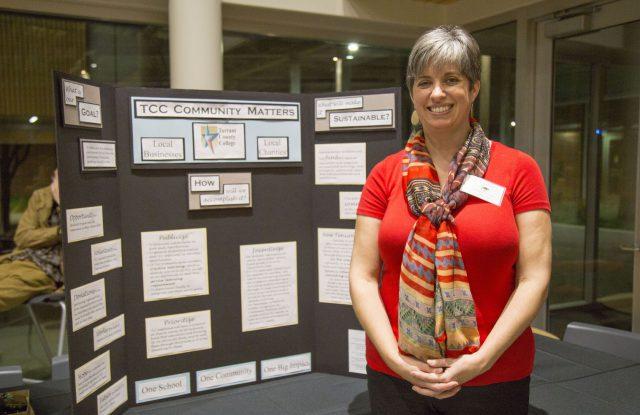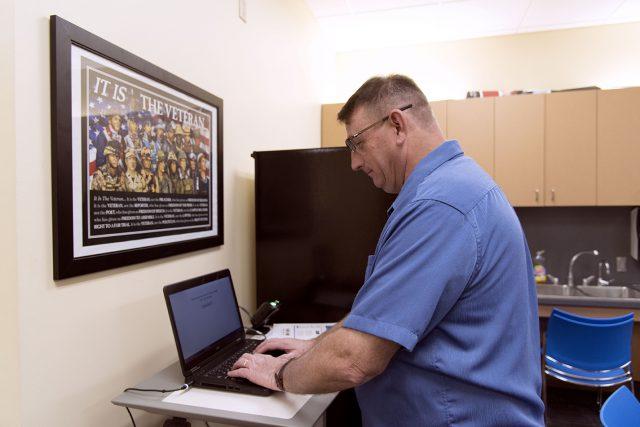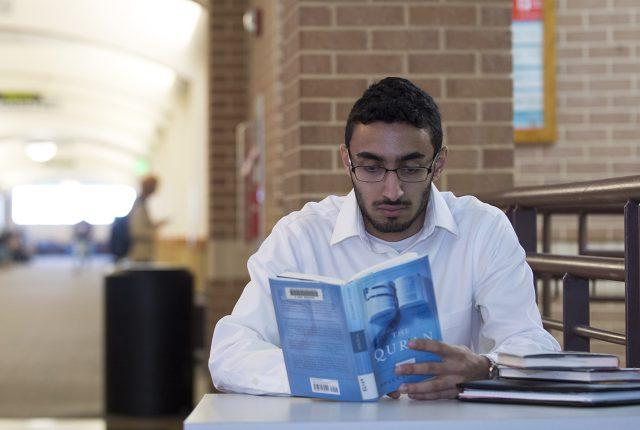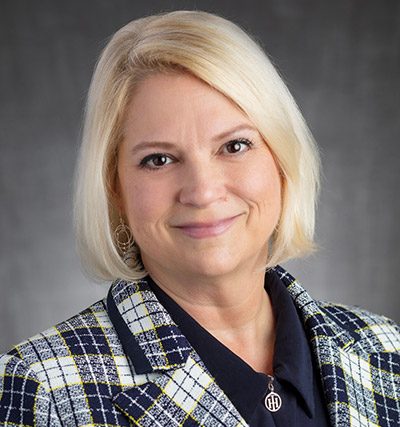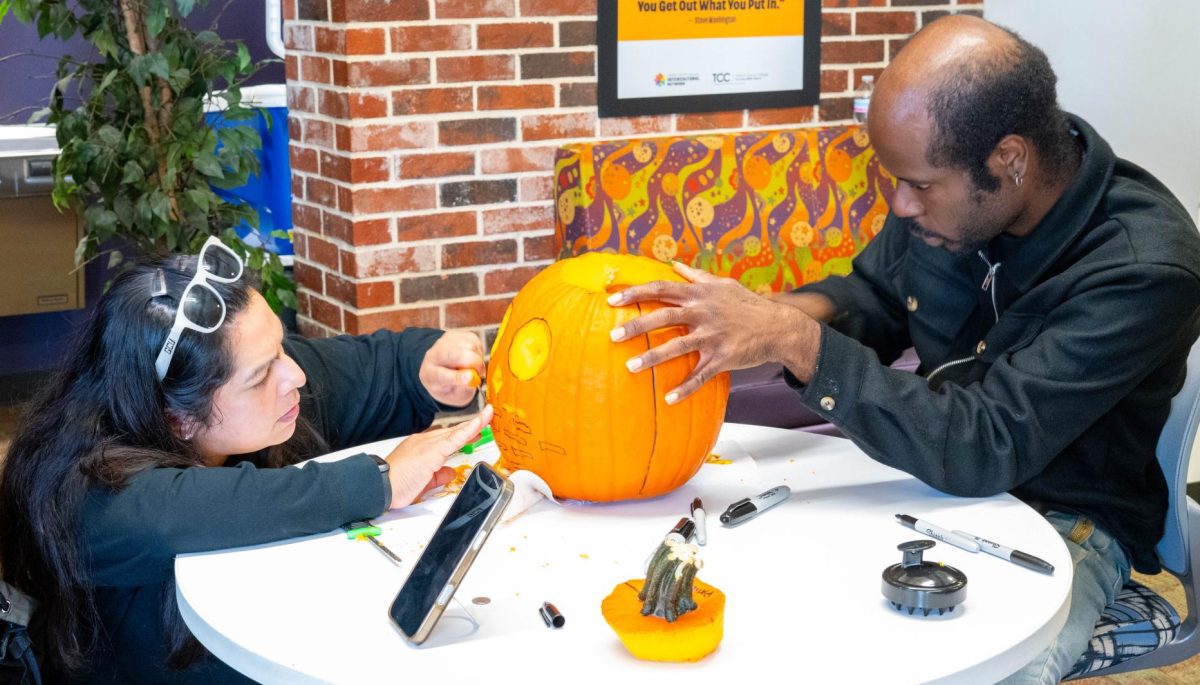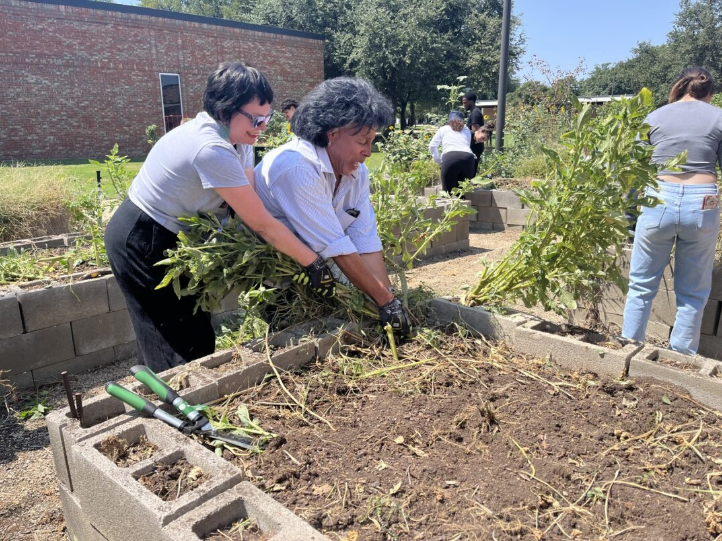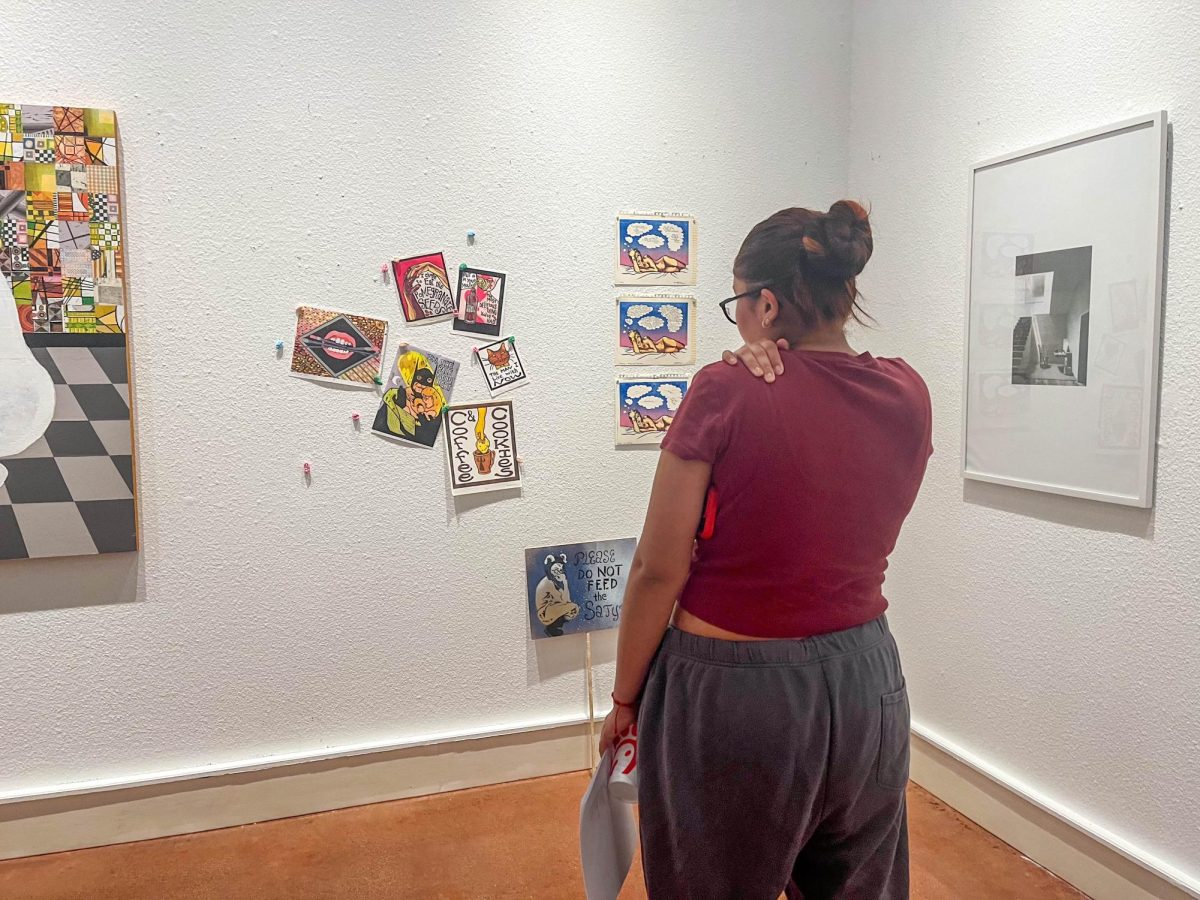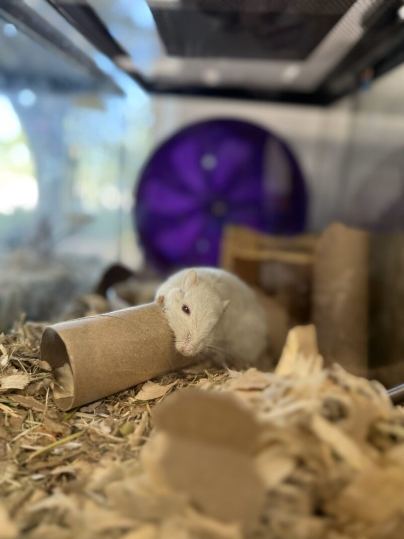By Richard Marmolejo/campus editor
South Campus students showcased their original research projects during the Cultivating Scholars Program Dec. 1.
The event allows students to team up with a faculty member, either as part of a class or extracurricular research work, chemistry instructor and event co-chair Martha Gilchrist said.
“The main benefit of the event is to encourage students to undertake undergraduate research in the four academic divisions at South Campus,” Gilchrist said. “Students will develop their critical thinking skills. They nurture an interest in a specific topic, and they develop their abilities to speak at a higher intellectual level about the topic that they studied in depth.”
Students competed for a variety of scholarships, chosen by a panel of judges from area universities, Gilchrist said.
Behavioral and social science dean Carolyn Robertson, one of the event’s original coordinators, said she sees undergraduate research as a way for students to gain experience for future projects.
“The learning experience is twofold in that students do the research and produce a project, which may lead to further research and, in the process, the student has learned how to conduct scholarly research,” Robertson said.
Robertson believes the foundation of a good research project stems from the initial questioning of a topic and then going from there, she said.
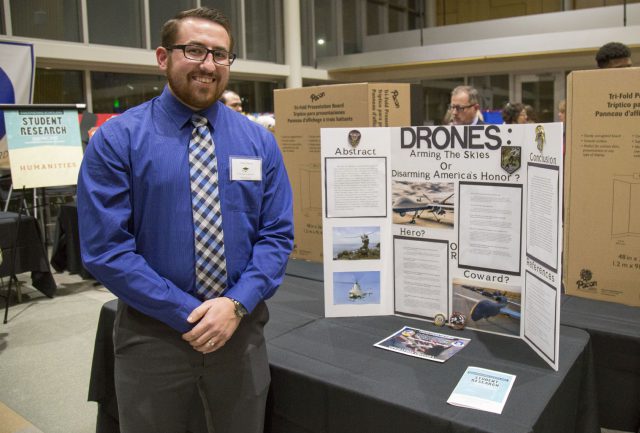
Photo by Lacey Phillips/The Collegian
“My interest in scholarly research is fueled by the fact that so much of the good literature that we have today is the results of someone somewhere who wondered why or how something occurred and began to research the problem,” she said.
“Cultivating Scholars seeks to assist and guide students as they learn how to properly research a subject so that someday these scholars may be adding to the body of knowledge in whatever field they choose to enter.”
NW student Audrey Peacock analyzed water samples from area colleges in her project.
“I found it interesting that TCC [campuses] had higher fluoride [levels] than universities did,” Peacock said. “You have schools from the same city, like UNT and Texas Woman’s [University], yet their fluoride concentration varied a lot. We want fluoride because it prevents cavities and protects our enamel. The higher the better.”
The chance to study a topic that sparked her interest inspired her to hopefully one day continue working on the project to benefit the community, she said.
“I would like to be able to expand this research to not necessarily college campuses but to places that don’t have access to proper dental care and see what their fluoride levels are because I know that’s very important for some people,” she said.
The program also gave Peacock the chance to understand the process behind conducting a research project and gave her an idea of what her future in the dental industry might look like.
“It gave me mad respect for scientists and what they do because this was a lot harder than I anticipated,” she said. “Research takes a lot of time, [something] that I wasn’t anticipating, but it was really rewarding when it was done.”
South student Sarah Isaacs worked on a project that focused on the lives of refugees and immigrants in the area.
“We wanted to know how we could help these people,” Isaacs said. “So, we contacted the Partners for Refugee Empowerment, Catholic Charities and the Texas Center for Refugees. They all deal with refugees and getting them integrated into society.”
Isaacs found one of the larger barriers that keeps refugees from reaching success is the lack of education accessible to them, she said.
“One thing that we found over and over again is that they are not receiving education, almost at all,” she said. “Only 1 percent of refugees ever go to college.”
She reached out to International Newcomer Academy, a local school that caters to refugees and immigrants in the area, and got involved with the students by organizing events to help these students succeed.
“We had different departments from the school come, like the Family Empowerment Center and the business and financial aid offices,” she said.
Isaacs said she enjoyed her overall experience participating in the Cultivating Scholars program because it helped expose her to a problem she could help with, and it inspired her to continue her education to help others along the way.
“It’s very humbling to deal with people that come from situations of war and poverty and hearing their stories,” Isaacs said. “Actually being able to have an impact on their lives is amazing. It is like nothing I’ve ever experienced.”
























